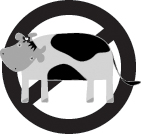
Sinsegae food, the main school meal provider at universities such as Ewha, Sookmyung, Hongik, Konkuk and Kwon Sang-bong, a staff member at the Department of Public Relations Team of the food service provider, Our Home, said that his company has also decided not to use imported beef. The company operates the dormitory cafeteria at Ewha and cafeterias at Hanyang, Yonsei, Konkuk and Seoul National University (SNU) and others. The dormitory cafeteria in Ewha made it clear that it was using Australian beef. According to Kwon, Our Home plans to enforce a management system to prevent using imported beef. “Also, in case of beef provided by other companies, we are going to check the origin of the beef by thoroughly comparing the certificate of import declaration and the attached label on the beef,” said Kwon. Hanwha Resorts said the same. Park Jae-eun, the nutritionist at the SNU school cafeteria run by Hanwha Resorts, said that they copied the certificate of import declaration for students to prove that they use Korean and Australian beef. Hanwha Resorts manages cafeterias in Sogang, Hanyang, Despite the cafeterias’ effort to relieve students’ worries, the doubts do not easily disappear. Kim Su-hyun (’07, Mathematics Education), an Ewha graduate who still uses the school cafeteria said that she cannot completely believe the information about the origins of the ingredients used by Sinsegae food in Ewha. “Mad cow disease appears 10 years after a person has eaten the beef containing the risk factor of the disease. So, we don't know if we are eating imported beef in the cafeteria until 10 years have passed,” said Park. Kim Hye-ryun ( In fact, there is already a law which punishes deceptive labeling of food origins by a fine or imprisonment. However, for now, cafeterias in Yet, relieved voices are also heard. “I am relieved to see the notice that the cafeteria uses beef from , not the ,” said Sun So-won (Liberal Arts, 1). When SNU cafeteria posted a certificate of import declaration that states the origin of beef it uses is , Cho Gil-hyun (SNU, 2) said he trusted it. “I think the certificate of import declaration is reliable information for students to believe,” said Cho.

